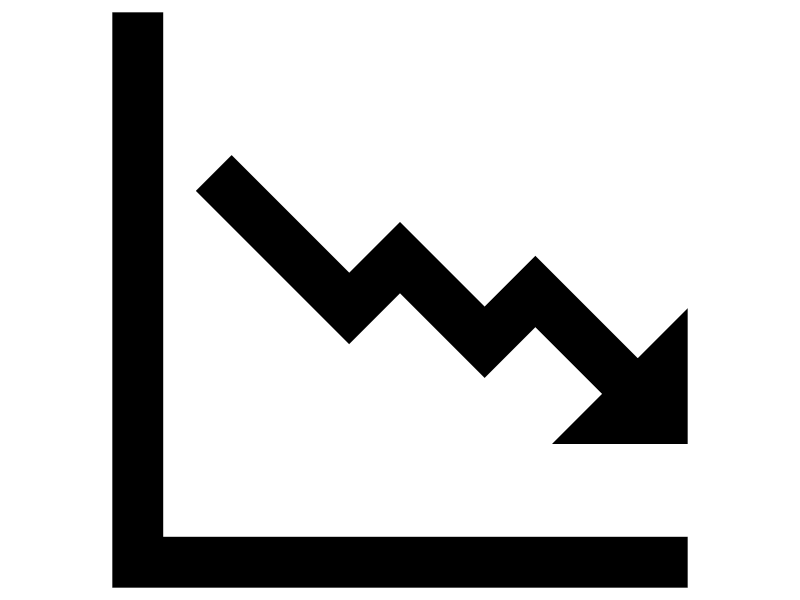Global Asset Allocation Perspectives
February 2024
To help guide the positioning of Scotia Portfolio Solutions, the Multi Asset Management team of Scotia Global Asset Management meets regularly to discuss and debate the current macro environment and what it means for portfolio positioning. The following report captures the team’s current views.
Key macroeconomic themes
Global economic themes that are most likely to influence our views on portfolio asset allocation over the next 12-to-18 months.

Economic growth will continue to be challenged
Global growth will continue to be challenged in 2024 as the lagged impact of higher interest rates continues to play out. A recession can not be ruled out, but we currently do not expect it to be a deep or prolonged should it occur.

Shift in interest rate expectations
Major central banks are likely to start cutting rates in the second half of 2024. The disinflation trend will continue but economic growth will likely need to weaken further for inflation to return to more sustainable, lower levels.

Risks remain
The impact of higher interest rates will continue to create risks in financial markets in 2024. The recent rally in equities has created the opportunity to take on a more defensive position given the uncertainty in our outlook.
Asset allocation perspectives
Equity outlook

We have a modestly negative view to equities as the global economy will likely face challenges over the next 12-to-18 months.
Global growth remains resilient, but the impact of higher rates is still playing out. Inflation has moved materially lower, but any reacceleration will be viewed negatively by the market. Rates are expected to move lower later in the year, however, low unemployment and elevated housing prices will likely constrain the ability to cut rates. Geopolitical tensions also continue to escalate.
The year end market rally looks stretched, and earnings growth will need to pick up for it to continue.
Fixed income outlook

Towards the end of last year, central banks signalled their expectations to ease restrictive monetary policy. This helped bring bond yields down and delivered strong, almost equity-like returns for fixed income investors.
Yield levels remain elevated relative to recent years and provides a solid foundation for income and capital appreciation potential over the long-term.
The market has quickly priced in interest rate cuts for this spring or sooner. With possibility of this aggressive timeline not materializing, the direction of yields over the shorter term is less certain.
Canada

Despite long-term secular strength in the Canadian economy, we’ve shifted to a neutral view on Canadian equities. The Canadian economy is slowing as the impact of higher rates has had a greater impact on the cost of living in Canada than it has in the U.S.
The Bank of Canada is currently holding interest rates steady, as inflation remains stubborn. Coupled with Canada's negative earnings sentiment is the potential for slowing demand in oil markets.
U.S.

U.S. markets continue to demonstrate relative strength with strong fundamentals. While still a concern, inflation has declined materially while growth has remained positive. The U.S. is likely finished raising interest rates and it is expected to cut rates several times this year.
Additionally, the U.S. is home to several large mega-cap technology leaders that are best positioned to benefit from ongoing technology trends like artificial intelligence. The U.S. market appears best positioned to weather a global slowdown relative to other regions.
International

We remain relatively underweight international markets. Macro economic indicators remain weak and underperforming those seen in the U.S.
We see limited potential for improvement with higher inflation constraining monetary policy and continued risks related to energy insecurity. In this environment revenue growth is expected to underperform.
Emerging Markets

We are neutral emerging markets overall. Chinese economic data remains weak, and confidence continues to erode. Structural challenges around the property sector as well as regulatory and geopolitical uncertainty continue to weigh on the Chinese economy.
However, discounted valuations and pessimistic investor sentiment may provide an opportunity as China rolls out stimulus to counter the weak economy.
For further information, download the full Global Asset Allocation Perspectives Report.
All data as of December 31, 2023.
Commissions, trailing commissions, management fees and expenses may be associated with mutual fund investments. Please read the prospectus before investing. Mutual funds are not guaranteed or insured by the Canada Deposit Insurance Corporation or any other government deposit insurer; their values change frequently, and past performance may not be repeated.
This document is provided for information purposes only. It is not to be relied upon as financial, tax or investment advice or guarantees about the future, nor should it be considered a recommendation to buy or sell. Information contained in this document, including information relating to interest rates, market conditions, tax rules, and other investment factors, are subject to change without notice, and The Bank of Nova Scotia is not responsible to update this information. All third-party sources are believed to be accurate and reliable as of the date of publication, and The Bank of Nova Scotia does not guarantee its accuracy or reliability. Readers should consult their own professional advisor for specific financial, investment and/or tax advice tailored to their needs to ensure that individual circumstances are considered properly and action is taken based on the latest available information. This commentary may contain forward-looking statements based on current expectations and projections about future general economic factors. Forward-looking statements are subject to inherent risks and uncertainties which may be unforeseeable and such expectations and projections may be incorrect in the future. Forward-looking statements are not guarantees of future performance and you should avoid placing undue reliance upon them. This publication and all the information, opinions and conclusions contained herein are protected by copyright. This publication may not be reproduced in whole or in part without the prior express consent of The Bank of Nova Scotia.
To the extent this document contains information or data obtained from third party sources, it is believed to be accurate and reliable as of the date of publication, but Scotia Global Asset Management does not guarantee its accuracy or reliability.
Scotia Global Asset Management is a business name used by 1832 Asset Management L.P., a limited partnership, the general partner of which is wholly owned by Scotiabank.
Scotiabank® includes The Bank of Nova Scotia and its subsidiaries and affiliates, including 1832 Asset Management L.P. and Scotia Securities Inc.
ScotiaFunds® and Dynamic Funds® are managed by Scotia Global Asset Management. ScotiaFunds and Dynamic Funds are available through Scotia Securities Inc. and from other dealers and advisors. Scotia Securities Inc. is wholly owned by The Bank of Nova Scotia and is a member of the Canadian Investment Regulatory Organization.
® Registered trademarks of The Bank of Nova Scotia, used under licence.
© Copyright 2024 The Bank of Nova Scotia. All rights reserved.

